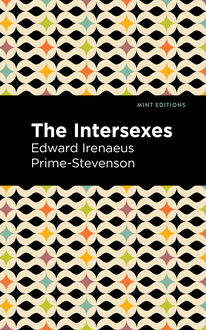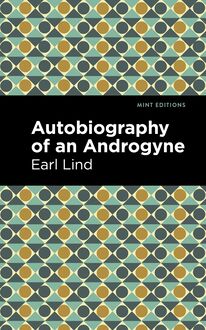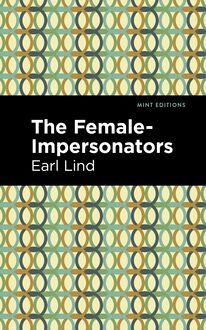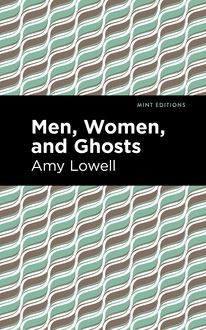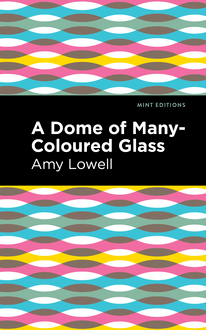-
 Univers
Univers
-
 Ebooks
Ebooks
-
 Livres audio
Livres audio
-
 Presse
Presse
-
 Podcasts
Podcasts
-
 BD
BD
-
 Documents
Documents
-
- Cours
- Révisions
- Ressources pédagogiques
- Sciences de l’éducation
- Manuels scolaires
- Langues
- Travaux de classe
- Annales de BEP
- Etudes supérieures
- Maternelle et primaire
- Fiches de lecture
- Orientation scolaire
- Méthodologie
- Corrigés de devoir
- Annales d’examens et concours
- Annales du bac
- Annales du brevet
- Rapports de stage
La lecture à portée de main

Vous pourrez modifier la taille du texte de cet ouvrage
Découvre YouScribe en t'inscrivant gratuitement
Je m'inscrisDécouvre YouScribe en t'inscrivant gratuitement
Je m'inscrisEn savoir plus
Vous pourrez modifier la taille du texte de cet ouvrage
En savoir plus

Description
Heritage (1919) is a novel by Vita Sackville-West. While she is most widely recognized as the lover of English novelist Virginia Woolf, Sackville-West was a popular and gifted poet, playwright, and novelist in her own right. A prominent lesbian and bohemian figure, Sackville-West was also the daughter of an English Baron, granting her a unique and often divided perspective on life in the twentieth century. Heritage, her debut novel, is a semi-autobiographical tale of desire, secrecy, and family. “[H]er name was Ruth, and she was gleaning. She moved by stages across the field, throwing out her long wooden rake to its farthest extent and drawing it back to her until she had gathered sufficient strands into a heap, when, laying down the rake, she bound the corn against her thigh, rapidly and skilfully into a sheaf.” While staying on a farm in rural Kent, Malory finds himself enthralled with Ruth Pennistan, the daughter of his host. Intrigued by her dark hair and olive complexion, he attempts to discover the secret of her birth. Known for her tumultuous, heated affairs with men and women alike, Sackville-West is an artist whose works so often mirror her life. With a beautifully designed cover and professionally typeset manuscript, this edition of Vita Sackville-West’s Heritage is a classic of English literature reimagined for modern readers.
Sujets
Informations
| Publié par | Mint Editions |
| Date de parution | 03 août 2021 |
| Nombre de lectures | 0 |
| EAN13 | 9781513212098 |
| Langue | English |
| Poids de l'ouvrage | 1 Mo |
Informations légales : prix de location à la page 0,0450€. Cette information est donnée uniquement à titre indicatif conformément à la législation en vigueur.
Extrait
Heritage
V. Sackville-West
Heritage was first published in 1919.
This edition published by Mint Editions 2021.
ISBN 9781513212197 | E-ISBN 9781513212098
Published by Mint Editions®
minteditionbooks.com
Publishing Director: Jennifer Newens
Design & Production: Rachel Lopez Metzger
Project Manager: Micaela Clark
Typesetting: Westchester Publishing Services
C ONTENTS P ART I I II III IV V P ART II I II III IV V P ART III I II III IV V VI
PART I
I
T wo years of my life were spent in a rough gray village of the Apennines; a shaggy village, tilted perilously up the side of the hill; a rambling village, too incoherent to form a single perspectived street, but which revolved around, or, rather, above and below, a little piazza warm with present sun, though grim with unknown, conjectured violence in the past. Here stood the massive civic palace, ancient and forbidding, with its tower poised and tremulous in the evening sky; and here the church, with its marble piet à , the work, it was said, of Mino da Fiesole. A mountain torrent poured down the village, a wild little storm of water, brown and white, spanned by a bridge, which rose abruptly to a peak, and as abruptly descended. In the evenings the youth of the village drifted towards the bridge, gossiped there, sang a snatch of song, or indolently fished. In the silent midday, stretched at length on the flat stone parapet, they slept…
The village was called Sampiero della Vigna Vecchia.
If I dwell thus upon its characteristics, it is from lingering affection and melancholy memories. My sentiment is personal; irrelevant to my present purpose. I resume:—
In this village—and it is for this reason that the village started up so irrepressibly in my thoughts—I had as a companion a man named Malory. Like me, he was there to study Italian. We were not friends; we lodged in the same house, and a certain degree of intimacy had thereby necessarily forced itself upon us; but we were not friends. I cannot tell you why. No quarrel stood between us. I liked him; I believe he liked me. But we were each conscious that our last day in Sampiero would also be the last day we spent together. No pleasant anticipation of continued friendship in our own country came to sweeten our student days in Italy.
Yet for one week in those two years Malory and I were linked by the thread of a story he told me, sitting out under a clump of stone-pines overlooking the village. It linked us, indeed, not for that week alone, but, though interruptedly and at long intervals, for many years out of our lives. Neither of us foresaw at the time the far-reaching sequel of his confidences. He, when he told me the story, thought that he was telling me a completed thing, an incident revived in its entirety out of the past; I, when I later went to investigate for myself, went with no thought of continuance; and finally, I, when I departed, did so in the belief that the ultimate word was spoken. Our error, I suppose, arose from our delusion that in this affair, which we considered peculiarly our own, we held in some measure the levers of control. Our conceit, I see it now, was absurd. We were dealing with a force capricious, incalculable, surprising, a force that lurked at the roots of nature, baffling alike the onlooker and the subject whose vagaries it prompted.
I should like to explain here that those who look for facts and events as the central points of significance in a tale, will be disappointed. On the other hand, I may fall upon an audience which, like myself, contend that the vitality of human beings is to be judged less by their achievement than by their endeavour, by the force of their emotion rather than by their success; if this is my lot I shall be fortunate. Indeed, my difficulty throughout has been that I laboured with stones too heavy for my strength, and tried to pierce through veils too opaque for my feeble eyes. Little of any moment occurs in my story, yet behind it all I am aware of tremendous forces at work, which none have rightly understood, neither the actors nor the onlookers.
It was less of a story that Malory told me, than a quiet meditative reminiscence, and he wove into it a great deal which, I begin to suspect, as I think over it, without extracting from my granary of words and impressions any very definite image, was little more than the fleeting phantom of his own personality. I could wish that fate had been a little kinder to me in regard to Malory. I am sure now that he was a man in whom I could have rejoiced as a friend.
When I think of him now, he stands for me as the type of the theorist, who, when confronted with realities, strays helplessly from the road. He had theories about love, but he passed love by unseen; theories about humour, but was himself an essentially unhumorous man; theories about friendship between men, but was himself the loneliest being upon earth. At the same time, I sometimes think that he had something akin to greatness in him; a wide horizon, and a generous sweep of mind. But I may be mistaking mere earnestness for force, and in any case I had better let the man speak for himself.
He said to me as we smoked, “Do you know the Weald of Kent?” and as he spoke he indicated with his pipe stem a broad half-circle, and I had a glimpse of flattened country lying in such a half-circle beneath my view.
His words gave me a strong emotional shock; from those gaunt mountains, that clattering stream, I was suddenly projected into a world of apple-blossom and other delicate things. The mountains vanished; the herd of goats, which moved near us cropping at the scant but faintly aromatic grass of the hill-side, vanished; and in their place stood placid cows, slowly chewing the cud in lush English meadows.
“I fancied once that I would take up farming as a profession,” said Malory. “I have touched and dropped many occupations in my life,” and I realised then that never before in the now eighteen months of our acquaintance had he made to me a remark even so remotely personal. “Many occupations, that have all fallen from me, or I from them. I am an inconstant man, knowing that no love can hold me long. Perhaps that is one of the reasons why I have never married. Such people should not marry, or, if they do, should at least choose a partner as inconstant as themselves. When I say inconstant, I mean of course the temperamentally, not the accidentally, inconstant. It is a new kind of eugenics, a sort of moral eugenics.
“So at one period of my life I had a fancy that I would try my hand at farming. I think perhaps it was one of my most successful experiments. I have a great love for the country people; they are to me like the oaks of the land, enduring and indigenous, beautiful with the beauty of strong, deep-rooted things, without intention of change. I love in them the store of country knowledge which they distil as resin from a pine, in natural order, with the revolving seasons. I love the unconsciousness of them, as they move unheeding, bent only on the practical business of their craft. I revere the simplicity of their traditional ideals. Above all, I envy them the balance and the stability of their lives.”
I wasn’t very much surprised; I had always thought him a dreamy, sensitive sort of fellow. I said,—
“But you surely don’t want to change with them?”
Malory smiled.
“Don’t I? Well, perhaps I don’t. I should have to give up my sense of wonderment, for they have none. They may be poems, but they are not poets. The people among whom I lived were true yeomen; they and their forefathers had held the house and tilled the land for two hundred and fifty years or more, since the Puritan founder of their race had received the grant from, so tradition said, the hands of Cromwell in person. Since the days of that grim Ironside, one son at least in the family had been named Oliver.
“The house was partly built of lath and plaster and partly of that gray stone called Kentish rag, which must have been, I used to reflect with satisfaction, hewn out of the very land on which the house was set. I remember how the thought pleased me, that no exotic importation had gone to the making of that English, English whole. No brilliant colour in that dun monochrome, save one, of which I will tell you presently. Have patience, for the leisure of those days comes stealing once more over me, when haste was a stranger, and men took upon them the unhurrying calm of their beasts.
“After the fashion of such homes, the house stood back from a narrow lane; a low stone wall formed a kind of forecourt, which was filled with flowers, and a flagged path bordered with lavender lay stretched from the little swing-gate to the door. The steps were rounded with the constant passing of many feet. The eaves were wide, and in them the martins nested year after year; the steep tiled roofs, red-brown with age, and gold-spattered with stonecrops, rose sharply up to the chimney-stacks. You have seen it all a hundred times. Do you know how such houses crouch down into their hollows? So near, so near to the warm earth. Earth! there’s nothing like it; lying on it, being close to it, smelling it, and smelling all the country smells as well, not honeysuckle and roses, but the clean, acrid smell of animals, horses, dogs, and cattle, and the smell of ripe fruit, and of cut hay.
“And there’s something of the Noah’s Ark about a farm; there’s Mr. Noah, Mrs. Noah, and Shem, Ham, and Japhet, and the animals, because there’s nothing in the world more like the familiar wooden figures of our childhood than the domestic animals. If you had never seen a cow before, gaunt and unwieldy, what a preposterous beast you would think it. Also a sheep—the living sheep is, if anything, even more like the woolly toy than the woolly toy is like the living sheep. And they all fit in so neatly, so warmly, just like the Noah’s Ark. However, I won’t labour the point…
“This house of which I am telling you
Attention
En entrant sur cette page, vous certifiez :
- 1. avoir atteint l'âge légal de majorité de votre pays de résidence.
- 2. avoir pris connaissance du caractère érotique de ce document.
- 3. vous engager à ne pas diffuser le contenu de ce document.
- 4. consulter ce document à titre purement personnel en n'impliquant aucune société ou organisme d'État.
- 5. vous engager à mettre en oeuvre tous les moyens existants à ce jour pour empêcher n'importe quel mineur d'accéder à ce document.
- 6. déclarer n'être choqué(e) par aucun type de sexualité.
YouScribe ne pourra pas être tenu responsable en cas de non-respect des points précédemment énumérés. Bonne lecture !
-
 Univers
Univers
-
 Ebooks
Ebooks
-
 Livres audio
Livres audio
-
 Presse
Presse
-
 Podcasts
Podcasts
-
 BD
BD
-
 Documents
Documents
-
Jeunesse
-
Littérature
-
Ressources professionnelles
-
Santé et bien-être
-
Savoirs
-
Education
-
Loisirs et hobbies
-
Art, musique et cinéma
-
Actualité et débat de société
-
Jeunesse
-
Littérature
-
Ressources professionnelles
-
Santé et bien-être
-
Savoirs
-
Education
-
Loisirs et hobbies
-
Art, musique et cinéma
-
Actualité et débat de société
-
Actualités
-
Lifestyle
-
Presse jeunesse
-
Presse professionnelle
-
Pratique
-
Presse sportive
-
Presse internationale
-
Culture & Médias
-
Action et Aventures
-
Science-fiction et Fantasy
-
Société
-
Jeunesse
-
Littérature
-
Ressources professionnelles
-
Santé et bien-être
-
Savoirs
-
Education
-
Loisirs et hobbies
-
Art, musique et cinéma
-
Actualité et débat de société
- Cours
- Révisions
- Ressources pédagogiques
- Sciences de l’éducation
- Manuels scolaires
- Langues
- Travaux de classe
- Annales de BEP
- Etudes supérieures
- Maternelle et primaire
- Fiches de lecture
- Orientation scolaire
- Méthodologie
- Corrigés de devoir
- Annales d’examens et concours
- Annales du bac
- Annales du brevet
- Rapports de stage
